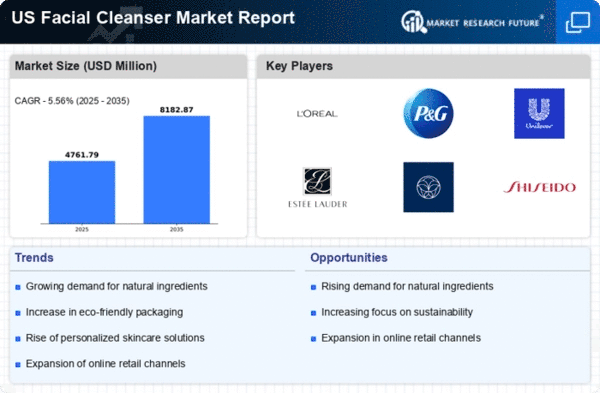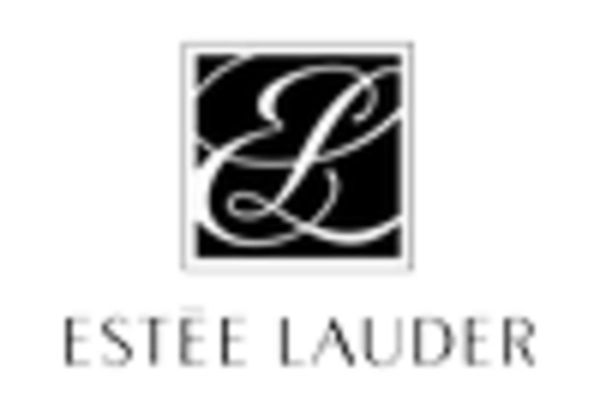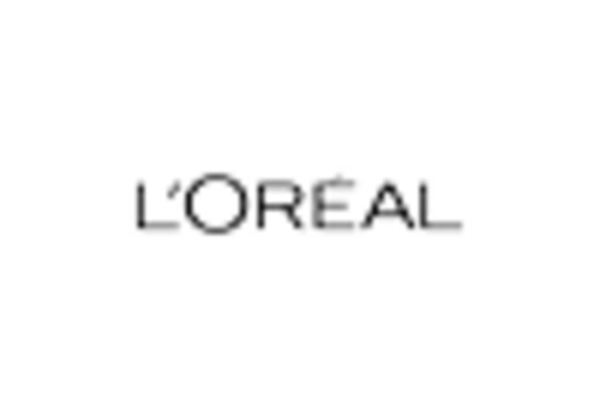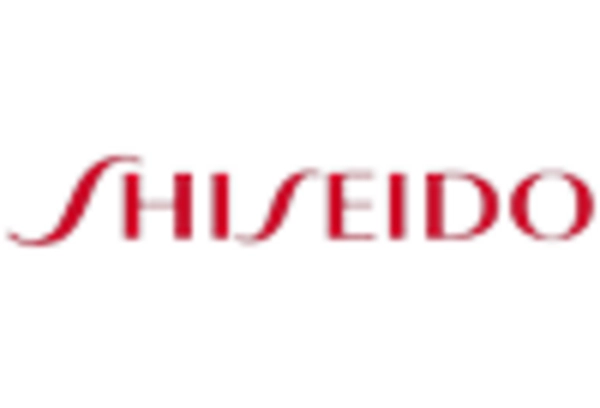Rising Demand for Clean Beauty Products
the facial cleanser market is experiencing a notable shift towards clean beauty products, driven by consumer awareness of harmful ingredients.. This trend indicates that consumers are increasingly seeking products that are free from parabens, sulfates, and synthetic fragrances. In 2025, it is estimated that the clean beauty segment will account for approximately 30% of the overall facial cleanser market. This growing preference for transparency in ingredient sourcing and formulation is reshaping the competitive landscape, compelling brands to reformulate existing products and innovate new offerings that align with these consumer values. As a result, companies that prioritize clean and safe formulations are likely to gain a competitive edge in the facial cleanser market.
Growth of E-commerce and Online Retailing
The facial cleanser market is significantly benefiting from the rapid growth of e-commerce and online retailing. As of 2025, online sales are expected to represent over 40% of total sales in the facial cleanser market. This shift is largely attributed to the convenience of online shopping, coupled with the ability to access a wider range of products and brands. Additionally, the COVID-19 pandemic has accelerated the adoption of online shopping, leading to lasting changes in consumer behavior. Brands that invest in robust e-commerce platforms and digital marketing strategies are likely to capture a larger share of the market. The increasing reliance on online channels is reshaping how consumers discover and purchase facial cleansers.
Focus on Personalization and Customization
the trend towards personalization and customization is becoming prominent in the facial cleanser market.. Consumers are seeking products tailored to their specific skin types and concerns, leading brands to develop customizable formulations. In 2025, it is anticipated that personalized skincare solutions will account for approximately 25% of the facial cleanser market. This shift indicates a growing demand for products that address individual needs, such as acne, dryness, or sensitivity. Brands that offer personalized consultations and bespoke formulations are likely to resonate with consumers, enhancing brand loyalty and driving sales. The emphasis on tailored skincare solutions is reshaping product development strategies within the facial cleanser market.
Increased Awareness of Skin Health and Wellness
increased awareness of skin health and wellness significantly drives the facial cleanser market.. Consumers are becoming more educated about the importance of proper skincare routines, leading to a greater emphasis on cleansing as a foundational step. In 2025, it is estimated that the facial cleanser market will grow by approximately 15% as consumers prioritize products that promote skin health. This trend is further fueled by the influence of dermatologists and skincare professionals advocating for effective cleansing practices. Brands that emphasize the health benefits of their facial cleansers, such as hydration and protection against environmental stressors, are likely to attract health-conscious consumers. The focus on skin health is reshaping marketing strategies within the facial cleanser market.
Influence of Social Media and Beauty Influencers
social media and beauty influencers profoundly impact consumer purchasing behavior in the facial cleanser market.. Platforms such as Instagram and TikTok serve as vital channels for product discovery and brand engagement. In 2025, it is projected that nearly 70% of consumers will rely on social media recommendations when selecting facial cleansers. Influencers play a crucial role in shaping perceptions and driving trends, often showcasing products through tutorials and reviews. This dynamic creates opportunities for brands to leverage influencer partnerships to enhance visibility and credibility. Consequently, the facial cleanser market is likely to witness increased sales driven by effective social media marketing strategies.
















